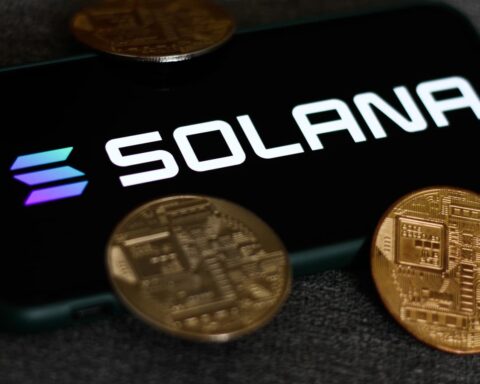The rapid advancement of high-level artificial intelligence (AI) technology has ignited a competitive race between the United States and China, each striving to lead in the development of the most formidable AI systems.
This pursuit has sparked escalating tensions between the two global superpowers.
The Biden Administration, in a decisive move, has imposed limitations on Chinese tech investments pertaining to semiconductors, quantum computing, and AI.
This initiative has triggered apprehensions among regulators in various nations.
The European Union and the United Kingdom are deliberating their responses to this U.S. action.
On August 9, The White House issued two executive notices addressing AI advancements.
The first highlighted a novel opportunity for hackers to employ AI in fortifying U.S. infrastructure against cybersecurity threats, with monetary incentives as rewards.
Conversely, the second note designated China, Hong Kong, and Macau as “countries of concern.”
This classification empowers the U.S. to regulate investments within these regions, particularly in sectors pertinent to national security, including semiconductors, microelectronics, and quantum information technologies.
The document underscored the role of these sectors in military, intelligence, surveillance, and cyber-enabled capabilities.
READ MORE: Governments Remain Wary About Worldcoin Amid Privacy Concerns
The scope of the note presently encompasses the mentioned countries; however, a Biden administration official hinted at the possibility of adding other nations in the future.
The U.S. has already undertaken measures to curtail Chinese technological investments and restrict Chinese access to American services and products.
In a significant development, U.S. regulators imposed bans on semiconductor chip exports to China in October 2022, as these chips are integral to the creation of high-performance AI systems.
China responded swiftly to the U.S. pronouncement through an official statement from the Chinese Embassy in the U.S.
The Chinese Ministry of Foreign Affairs denounced the U.S.’s unilateral decisions regarding investments in China, decrying them as economic coercion and tech bullying.
China perceived these actions as an attempt to sideline it from the global arena.
To counter previous U.S. moves, China announced tightened controls on AI chip-making material exports.
Reports indicated that prominent Chinese tech giants, such as Baidu, ByteDance, Tencent, and Alibaba, have placed significant orders for Nvidia A800 processors, anticipating stricter controls from the U.S.
The U.S. stance had immediate repercussions abroad.
The U.K.’s Prime Minister’s office indicated that the U.S. measures would be taken into consideration while assessing potential national security risks linked to specific investments.
The European Commission also pledged to analyze the U.S. decision, given its proactive involvement in monitoring and regulating AI developments.
As the AI race intensifies, the actions of these influential players hold significant implications for the global technological landscape.
Other Stories:
PayPal’s Ethereum-Based Stablecoin PYUSD Divides Crypto Community
XRP Price Fails to Reach Anticipated Levels Despite Favorable Court Ruling
Binance’s Proof-of-Reserves Discloses Strong Financial Position




